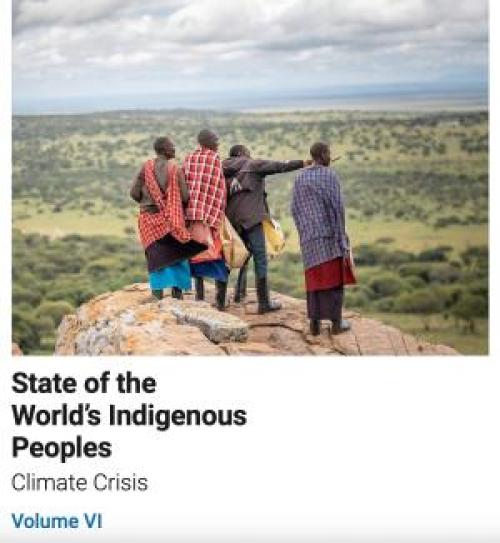
The sixth edition of the State of the World's Indigenous Peoples focuses on Climate Crisis. It focuses on the vital role of Indigenous peoples in addressing the impacts of climate change. Although Indigenous Peoples account for only around 5 per cent of the world’s population, they effectively manage and protect an estimated 80 per cent of the Earth’s biodiversity and about 40 per cent of protected areas and ecologically intact landscapes. Since Indigenous Peoples first came to the United Nations, they have emphasized the fundamental importance of their relationship with their lands, territories and resources, which hold a deep cultural and spiritual significance within their societies…
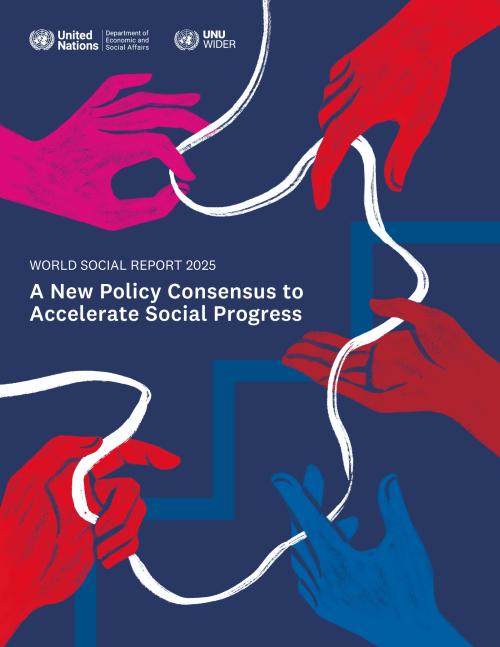
Economic insecurity, staggering levels of inequality, declining social trust and social fragmentation are destabilizing societies worldwide. The World Social Report 2025, reveals trends that are threatening communities and demand immediate, decisive policy action. The report calls for a new policy consensus anchored in three principles—equity, economic security for all, and solidarity—that are essential to strengthen the three dimensions of sustainable development.
The report is the first to be co-produced with the United Nations University World Institute for Development Economics Research (UNU-WIDER). This collaboration brings new research insights into the report,…
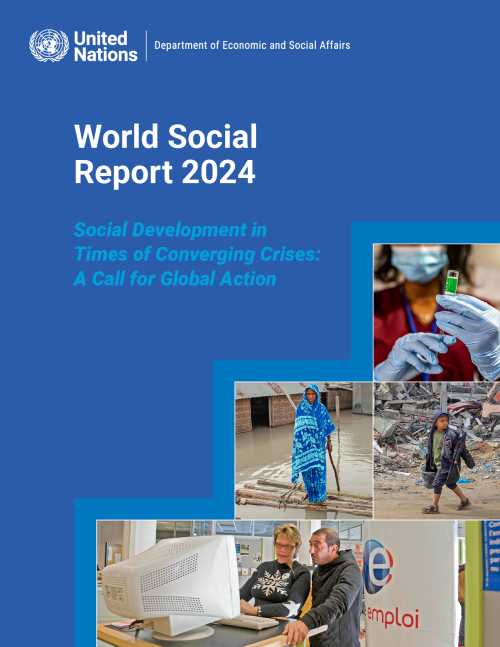
According to the World Social Report 2024, urgent global action is needed to support national efforts to address the setbacks caused by the recent global crises, and to avoid the conversion of future shocks to crises.
Titled “Social Development in Times of Converging Crises: A Call for Global Action”, the World Social Report 2024 explains that, in our current global policy environment, shocks more readily turn into crises that cross boundaries, demanding international action. Particularly as such crises disproportionately impact the most vulnerable people, societies and countries.
Crisis-driven setbacks in poverty reduction and unemployment
Successive shocks,…
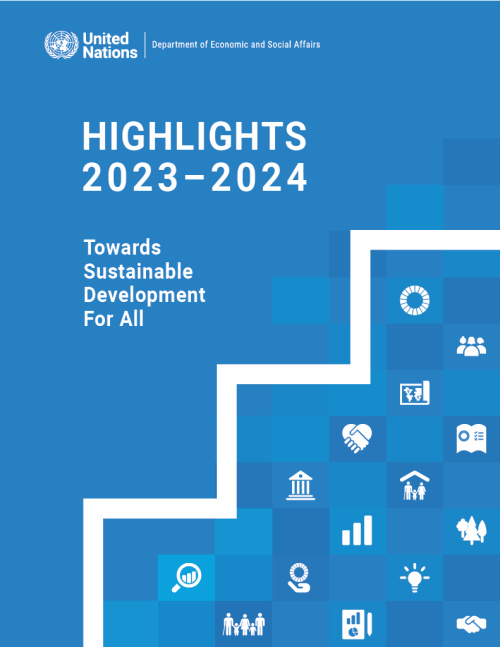
The UN DESA Annual Highlights report is a tool to communicate the contributions of the Department to the realization of internationally agreed development goals and shared social, economic, and environmental aspirations. It showcases the Department’s role in gauging trends, building capacities, and shaping solutions. UN DESA Highlights 2023–2024 covers activities over the period of the 78th Session of the General Assembly (September 2023 – August 2024) and reflects the Department’s response to the set priorities and expressed needs of Member States. Seven (7) thematic chapters showcase how UN DESA put its expertise to the task of supporting Member State efforts to implement the 2030…
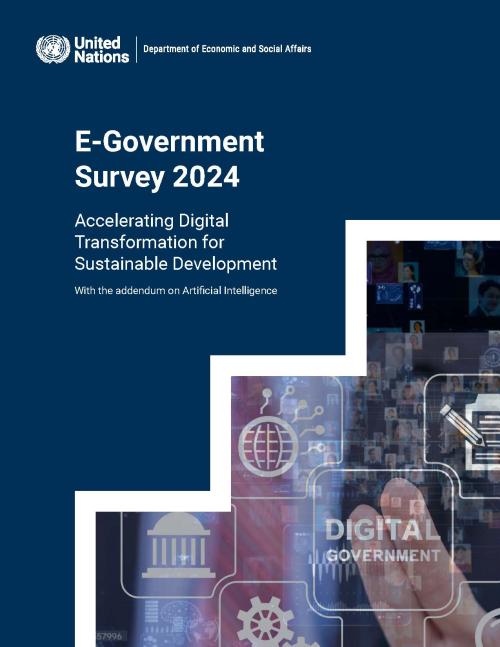
This thirteenth edition of the United Nations E-Government Survey, released in 2024, provides a comprehensive assessment of the digital government landscape across all 193 Member States. The 2024 Survey highlights a significant upward trend in the development of digital government worldwide, with increased investment in resilient infrastructure and cutting-edge technologies. The global average value of the E-Government Development Index (EGDI) shows substantial improvement, with the proportion of the population lagging in digital government development decreasing from 45.0 per cent in 2022 to 22.4 per cent in 2024.
Despite significant progress in digital government…
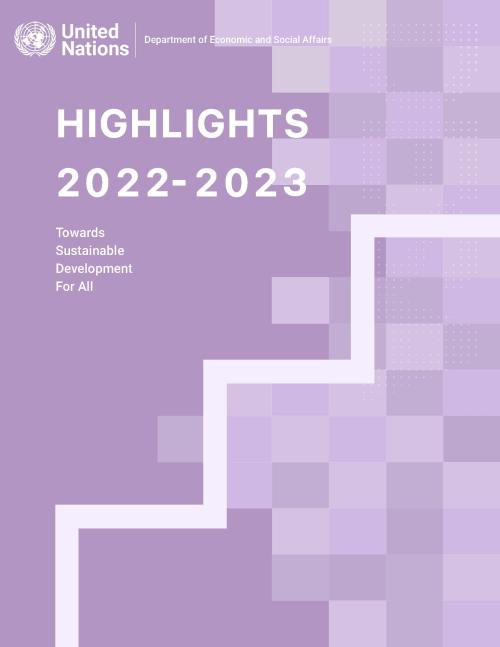
The UN DESA Annual Highlights report is a tool to communicate the contributions of the Department to the realization of internationally agreed development goals and shared social, economic, and environmental aspirations. It showcases the Department’s role in gauging trends, building capacities, and shaping solutions. UN DESA Highlights 2022-2023 covers activities over the period of the 77th Session of the General Assembly (September 2022 – August 2023) and reflects the Department’s response to the set priorities and expressed needs of Member States. Seven (7) thematic chapters showcase how UN DESA put its expertise to the task of supporting Member State efforts to implement the 2030…
The World Public Sector Report 2023 examines the role that national institutional and governance innovations and changes that emerged during the COVID-19 pandemic can play in advancing progress towards the 2030 Agenda for Sustainable Development. The report focuses on three main questions: How can Governments reshape their relationship with people and other actors to enhance trust and promote the changes required for more sustainable and peaceful societies? How can Governments assess competing priorities and address difficult policy trade-offs that have emerged since 2020? What assets and innovations can Governments mobilize to transform the public sector and achieve the SDGs? The report…
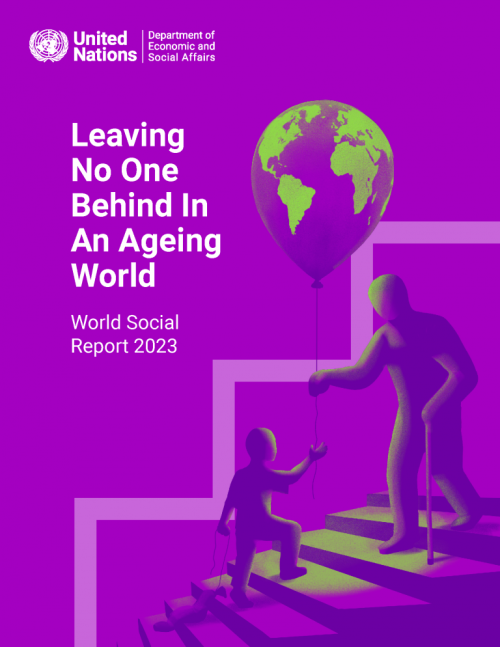
Population ageing is a defining global trend of our time. People are living longer, and more are older than ever before. Spectacular improvements in health and survival and reductions in fertility have driven this momentous shift, which has begun or is expected to begin soon in all countries and areas.
This change brings both challenges and opportunities as countries strive to achieve the Sustainable Development Goals (SDGs). In 2022, the world marked the twentieth anniversary of the adoption of the Madrid International Plan of Action on Ageing. To commemorate this landmark, the World Social Report 2023 explores the economic and social implications of the ageing of the human…
The United Nations E-Government Survey 2022 is the 12th edition of the United Nations’ assessment of the digital government landscape across all 193 Member States. The E-Government Survey is informed by over two decades of longitudinal research, with a ranking of countries based on the United Nations E-Government Development Index (EGDI), a combination of primary data (collected and owned by the United Nations Department of Economic and Social Affairs) and secondary data from other UN agencies.
This edition of the Survey includes data analysis in global and regional contexts, a study of local e-government development based on the United Nations Local Online Service Index (LOSI),…
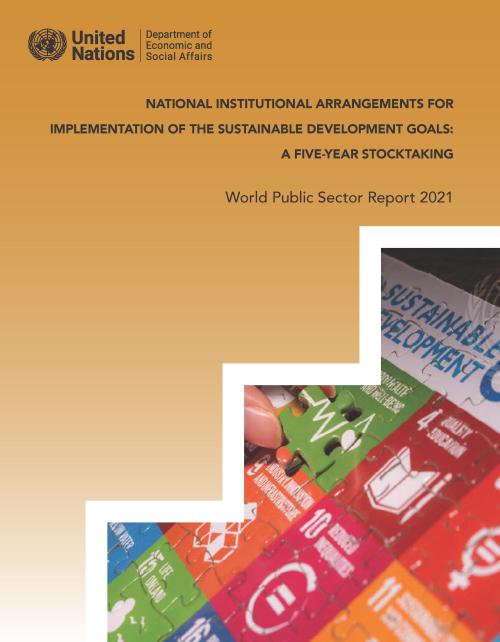
Institutions are paramount to the achievement of the 2030 Agenda for Sustainable Development and all the Sustainable Development Goals (SDGs). Five years after the start of the implementation of the Agenda, governance issues remain at the forefront. The COVID-19 pandemic has highlighted even more the importance of national institutions for the achievement of the SDGs. The World Public Sector Report 2021 focuses on three dimensions of institutional change at the national level. First, it documents changes in institutional arrangements for SDG implementation since 2015. Second, it assesses the development, performance, strengths and weaknesses of follow-up and review systems for the SDGs.…
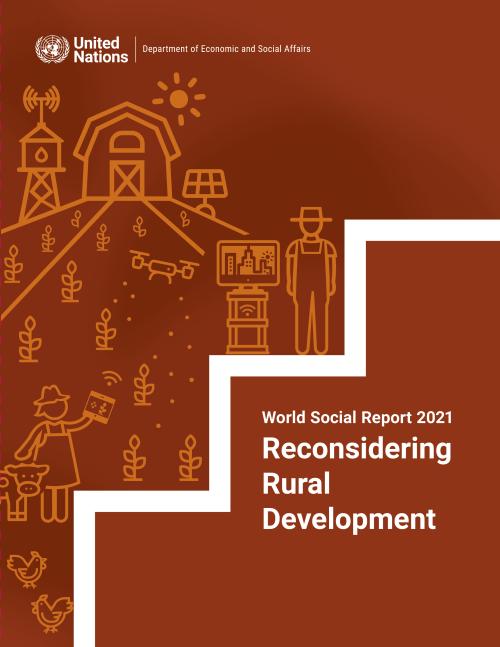
New approaches made possible through improved access and Internet connectivity can raise the standard of living for approximately 3.4 billion people living in rural areas, without them having to migrate to cities, according to the newly released 2021 World Social Report “Reconsidering Rural Development.”
The COVID-19 pandemic, together with already persistent high levels of poverty and inequalities, are threatening to stall progress for the world’s rural populations. But the pandemic has also proven that new technologies can enable rural populations to flourish, ending the rural-urban divide.
UN Secretary-General António Guterres said the new technologies opened up new…
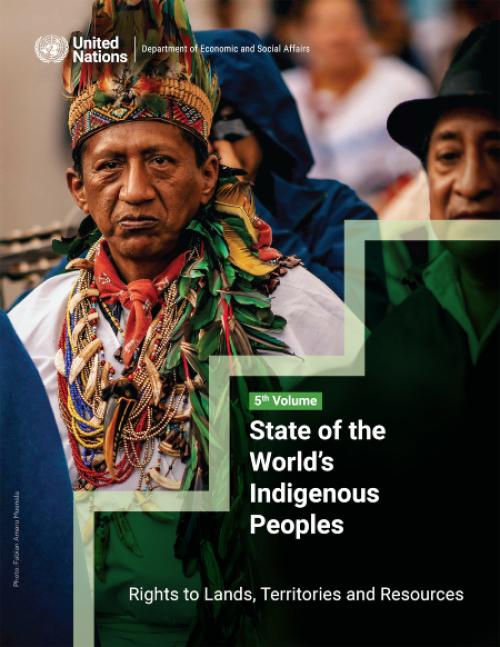
The world’s indigenous peoples call 22 per cent of the global land surface home. They live in areas where you find about 80 per cent of the planet’s biodiversity and much of the world’s non-commercially exploited land and many of its remaining mineral and forest resources, major rivers, fossil fuels and sources of renewable energy.
While often described as the custodians of our Earth’s precious resources, they are frequently denied their rights to lands, territories and resources, according to a new UN DESA publication released today.
The latest volume of the State of the World’s Indigenous Peoples entitled “Rights to Lands, Territories and Resources”,…
 Welcome to the United Nations
Welcome to the United Nations